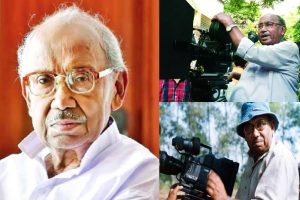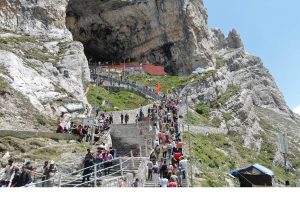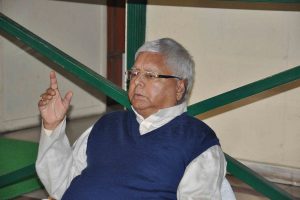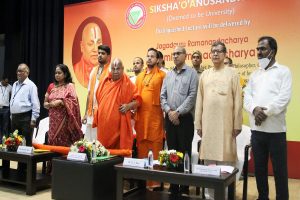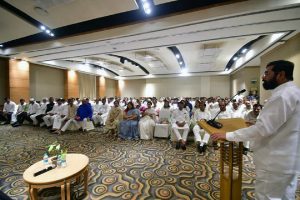Wheelchair-bound Anjlee Agarwal has long been an inspiration for the differently-abled. She co-founded an NGO, Samarthyam, two decades ago and has since then been actively engaged in making the environment accessible for the disabled. The NGO has had a Special Consultative Status with the United Nations Economic and Social Council (ECOSOC) since 2015. In an interview with ABHIJEET ANAND, she outlined the areas of concern for the disabled. Excerpts:
Q: It is almost a year since the Sugamya Bharat Abhiyan. The progress, as far as the Supreme Court is concerned, is very tardy. What are your comments?
A: In the Sugamya Bharat Abhiyan, which is the Accessible India campaign, there were phases to audit buildings. In the first phase last year, 2,000 buildings were audited in 32 cities. In each city 50 buildings were access audited. The state governments prepared the estimates and sent them to the Central government for funding.
The update is that most of the cities have given their estimates. Funding has come and drawings are underway. We helped the Ministry plan the entire Accessible India Campaign. But we cannot make India accessible overnight. The strategy is to train more people as access auditors.
But the new buildings, which are on the way, should have been accessible. The Supreme Court is right, the progress is tardy and the state governments and Central government should have taken enforceable or punitive action against those who are not complying.
Q: The Supreme Court has distinguished the current government from the earlier UPA government. In what way was the previous government different from the current government?
A: I cannot comment on the political scenario of the previous government or current government. But, yes, I suggest that any government has a mandate to look at the issue of accessibility in a very big way. It is meant for the entire society.
Q: The meeting of the central coordination committee was delayed and the Supreme Court pulled up the government for that. Only after that did the government schedule the meeting. Do you think the current government has any vision for the differently-abled?
A: The central coordination committee of the ministry has to meet regularly and progress of plans and policies that benefit people with disabilities should be discussed in every meeting. The coordination committee should not only look at existing plans but it should also have a vision to look at a five-year timeline. I am not really the right person to talk about the delay. But because of the delay, there is suffering for people with disabilities. It is really important that the meeting should happen. Action plans should be taken up. Timelines should be provided.
What actually is lacking in the entire campaign is capacity building of people. If there are engineers, planners and architects, they should know the standard of universal design. There is no code as of now for design of vehicles. But, yes, there is a code by Indian Road Congress on design of pedestrian environment.
Q: The government claims to have distributed smart assistive devices for the differently-abled. But we do not see anybody using them when we go outside. Your comments.
A: The pedestrian environment is not designed for them. That situation remains so even two decades after we noticed the problem. The same vicious cycle remains. We have distributed smart devices and appliances among differently-abled so that they can live life with dignity. But if the environment is not designed for them, how can they use them?
Q: The government claims to have given smart canes with sensors to the visually-impaired. But none of them are seen using them.
A: We know that smart cane users are there because we work with many of these people. We have seen them using them. But yes these are not many in numbers. They are a nearly invisible minority. Not many of us have ventured out to be visible. That is why you see small numbers. There are a lot of camps that have been organised. We have been part of some of the camps organised where assistive devices were given to people with disability.
Q: Has the private sector been sensitive to the needs of the differently-abled?
A: It is gearing up. Because of the Accessible India Campaign there is much more sensitivity. The private sector is looking at them as a diverse task force. They are hiring them because they work in a better way, they are more “loyal”. They get better productivity out of people with disabilities. Recently the Ministry of Social Justice launched an Accessibility Index for corporates to assess themselves.
Q: Did you give any suggestions for the People with Disabilities Bill?
A: Our focus was on two areas. One is universal accessibility and the other is empowerment of people with disabilities, especially women. Many of our considerations about accessible environment have been taken. A section has been dedicated in the Bill, that is, Section 3 to women and children with disabilities.
There are certain other issues which are not clearly specified such as on the legal capacity for people with severe disability. But we are happy that the Bill has provision for punitive action for the organisation or state that does not comply with accessibility.
Advertisement


